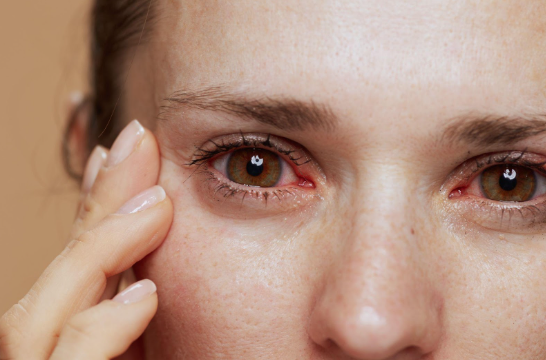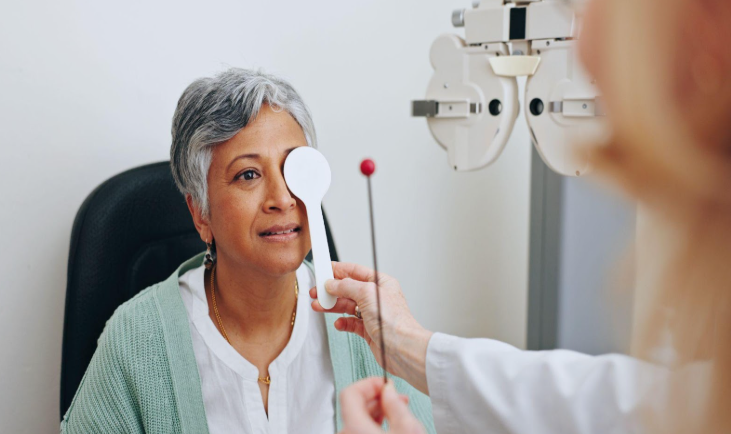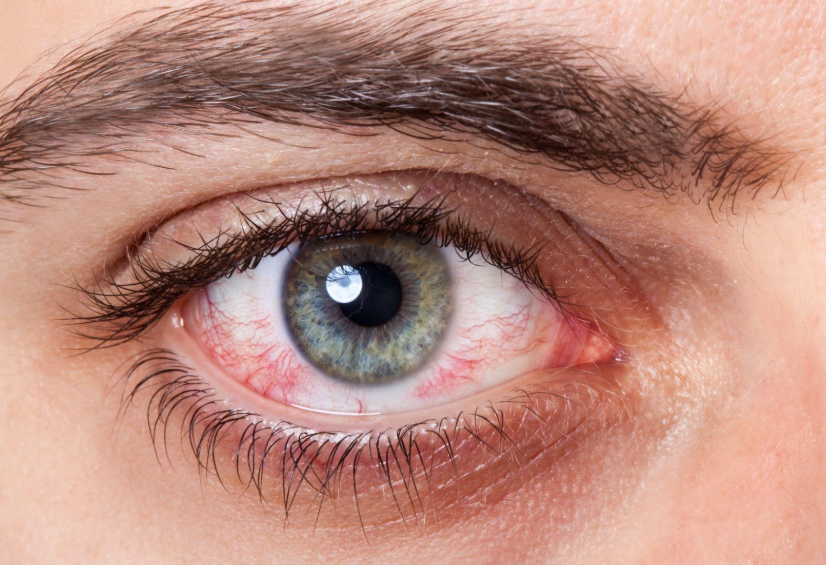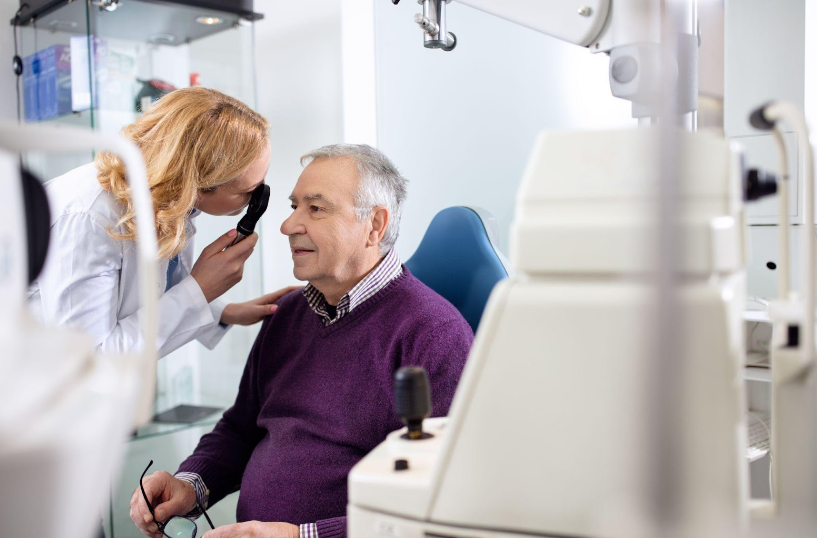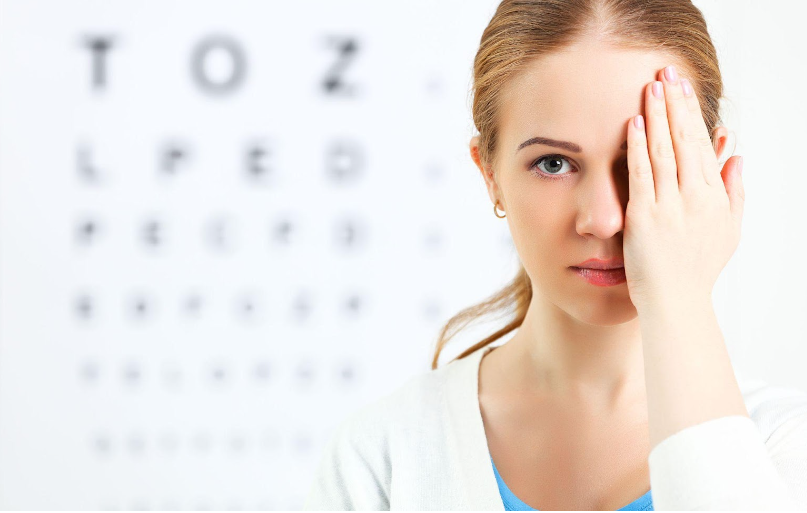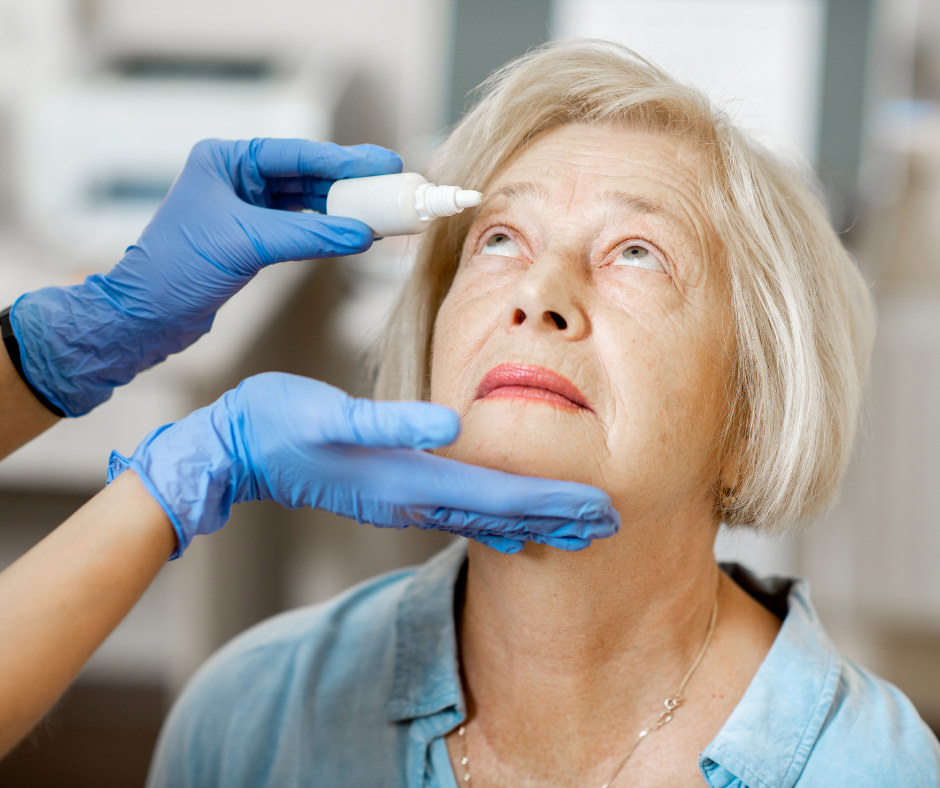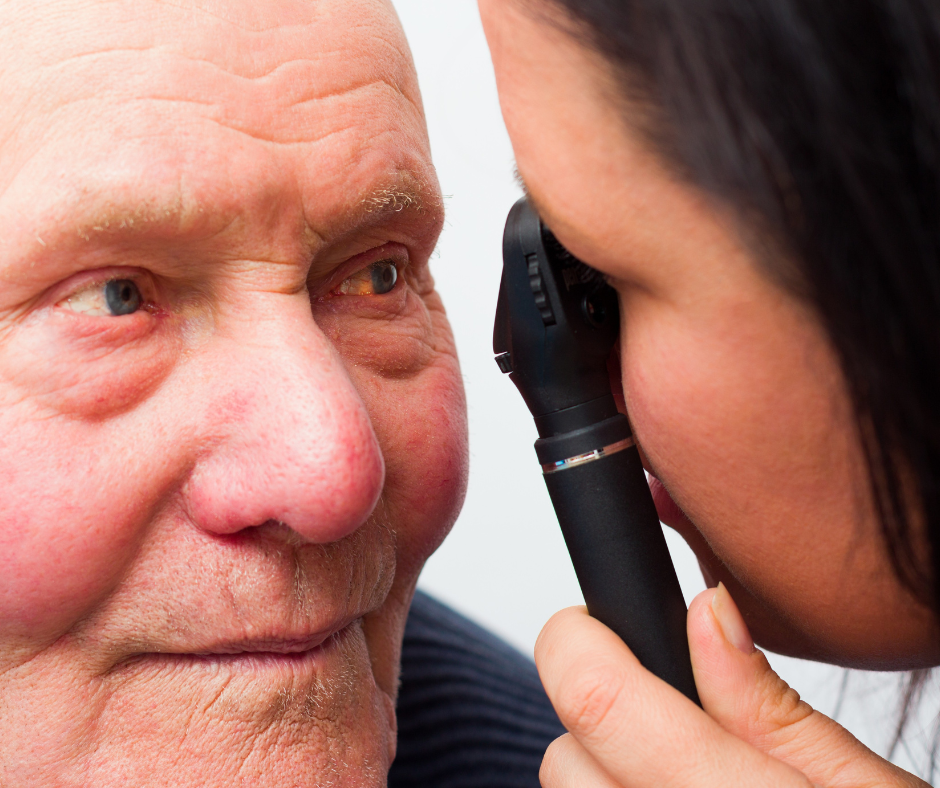What is Age-related Macular Degeneration?
Age-related macular degeneration (AMD) is a degenerative eye disease that causes damage to the macula. The macula is the center most part of the retina and is responsible for central vision. AMD affects more than 16 million Americans and is the leading cause of blindness in people over the age of 65. Often times, people with AMD can experience blurriness or distortion of images and potentially lose their central vision. AMD is a progressive condition, that can get worse over time, however, changes are often gradual.
Who is at risk for developing Age-related Macular Degeneration?
The greatest risk factor for AMD is age, which increases significantly once you turn 50. Other risk factors include:
- A diet high in saturated fat (meat, butter and cheese)
- Heart disease
- High cholesterol levels
- Being overweight
- Smoking cigarettes
- UV (sun) exposure
- A family history of AMD
- Being of Caucasian ethnicity
What are the types of Macular Degeneration?
There are two types of macular degeneration, dry and wet. 80% of people with AMD have the dry form. In this condition the tissues of the macula begin to thin with age and tiny clumps of protein called drusen form beneath the retina. People with dry AMD typically experience less severe and slower vision loss. Unfortunately, there is no way to treat dry macular degeneration at this time. A recent large study suggests that a daily dose of nutritional supplements and vitamins can slow the progression of dry AMD by up to 25%.
The wet form of AMD develops in about 10-20% of people. This form is more serious and occurs when new, abnormal blood vessels grow under the retina. These fragile vessels can leak blood and the blood causes scarring of the macula. Wet AMD progresses more rapidly than dry AMD and can potentially cause a complete loss of your central vision. Thankfully there are treatments for wet AMD. The most common treatment is an injection of anti-VEGF medication into the eye. These drugs help reduce the number of abnormal blood vessels in the retina and slow down leakage.
Because many conditions evolve over time, it is important to see your ophthalmologist regularly to check for any retina or vision changes. If you have any questions regarding AMD, contact our office or call 516-785-3900 (Wantagh office) or 516-541-4141 (Massapequa office) to schedule an appointment.
